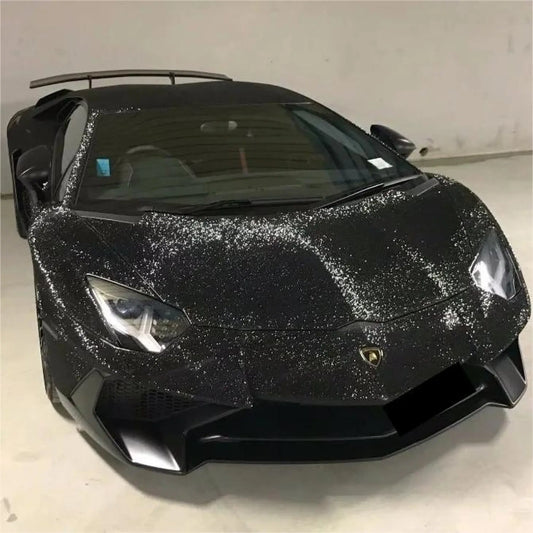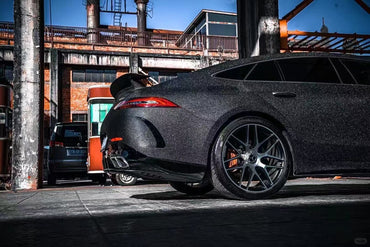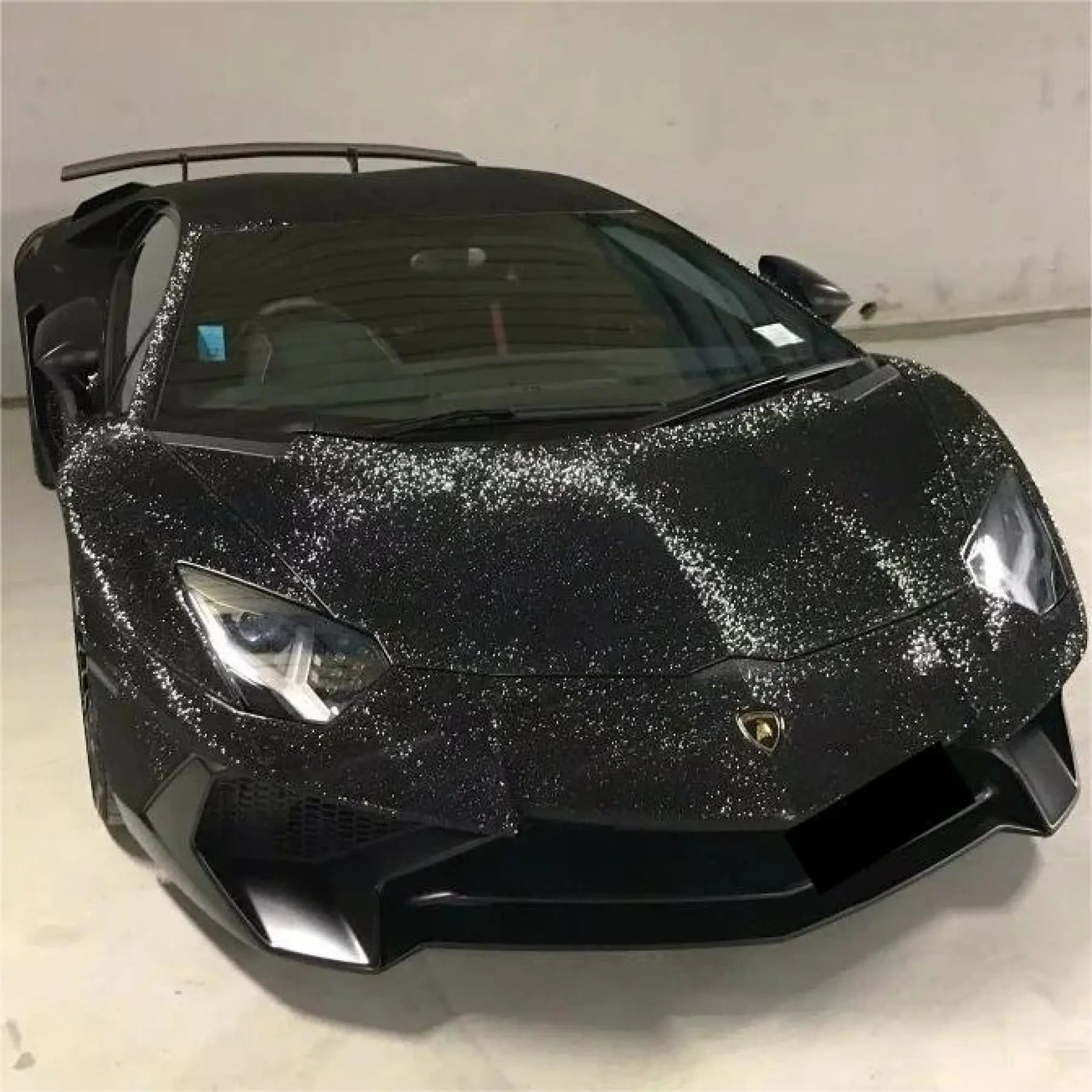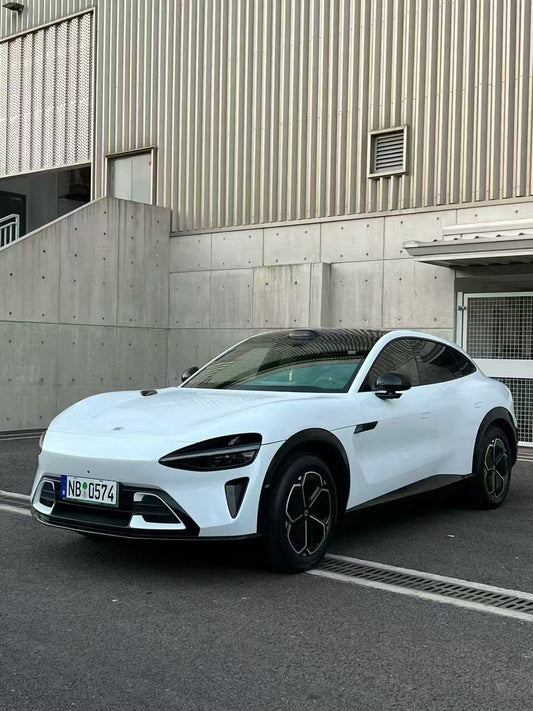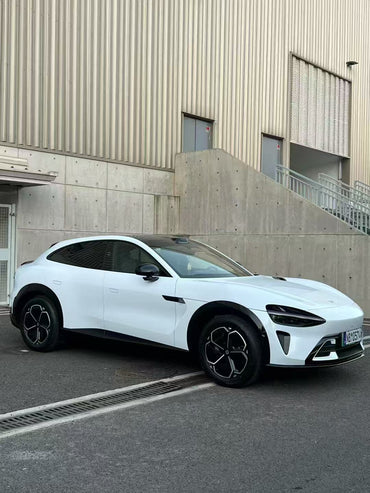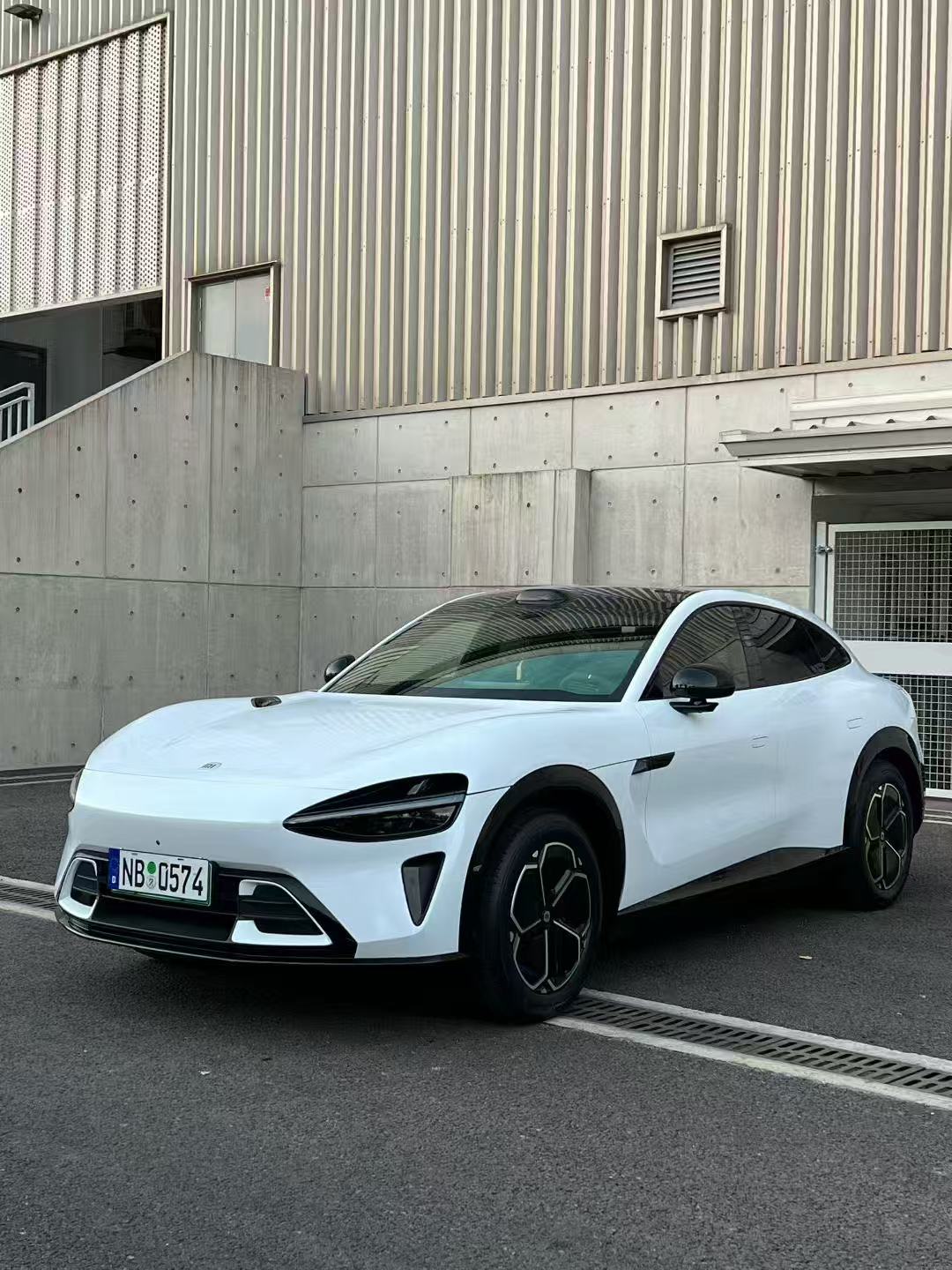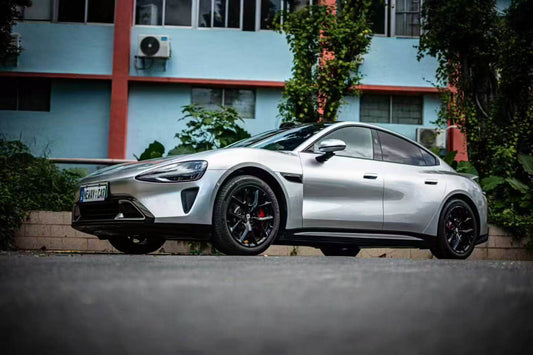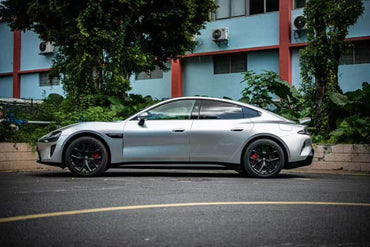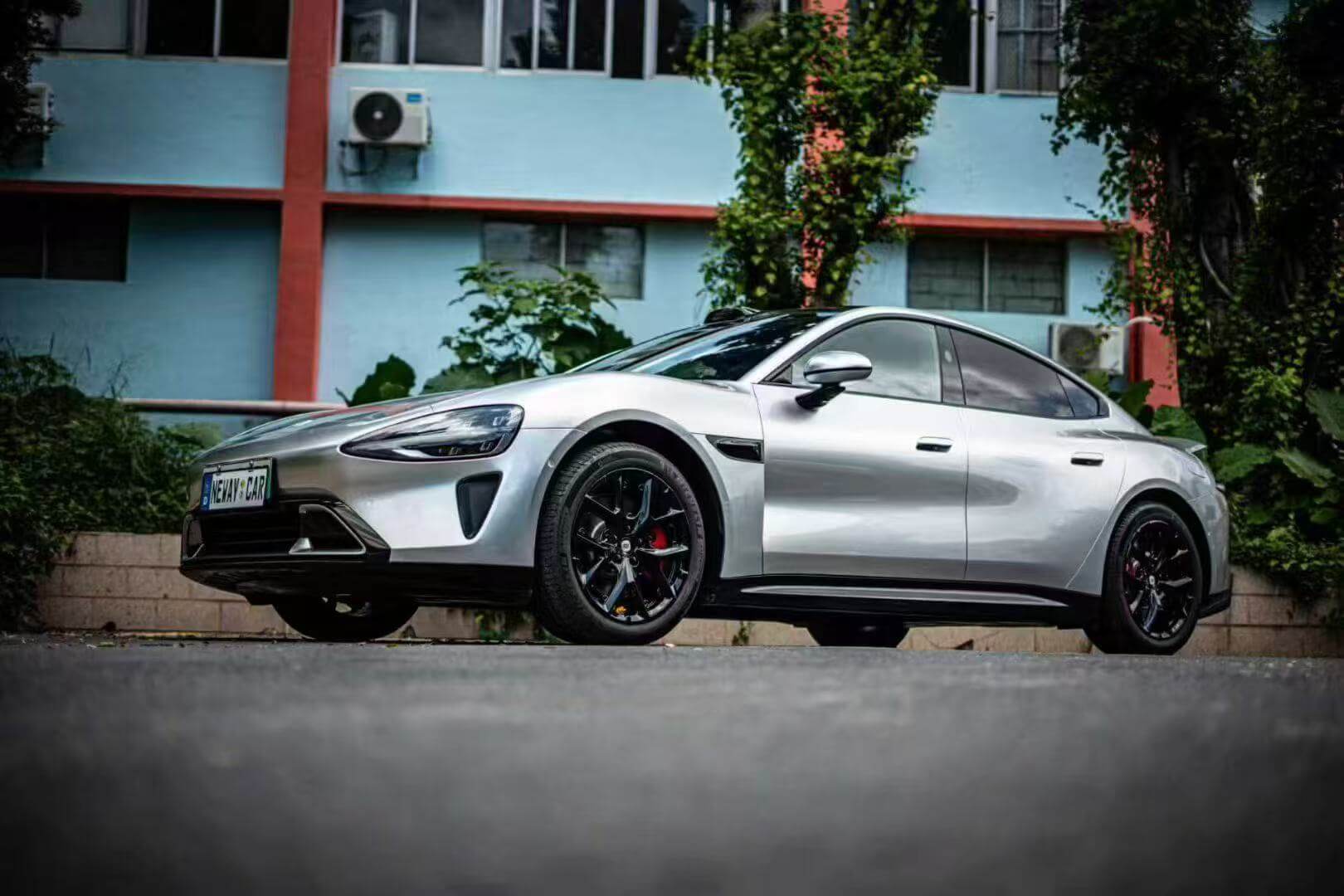Keep Your Car Wrap Looking Flawless for Years
Investing in a premium vinyl wrap is one of the best decisions you can make for your vehicle—whether you've chosen a stunning metallic vinyl wrap, eye-catching liquid chrome wrap, or sophisticated ultra-matte wrap. However, proper cleaning and maintenance are essential to preserve that showroom-quality appearance and maximize your investment's lifespan.
Why Proper Vinyl Wrap Cleaning Matters
Vinyl wraps aren't just decorative—they're protective barriers that shield your vehicle's original paint from UV damage, minor scratches, and environmental contaminants. According to industry research, proper maintenance can extend your wrap's lifespan from 3-5 years to 7-10 years, especially when using premium materials like TPU paint protection wraps.
Key benefits of proper wrap care:
- Prevents premature fading and discoloration
- Maintains vibrant colors and finishes
- Protects adhesive integrity
- Increases vehicle resale value by 10-15%
- Preserves warranty coverage
Understanding Different Vinyl Wrap Finishes
Different finishes require specific cleaning approaches. Knowing your wrap type ensures you use the correct maintenance methods:
Gloss & Metallic Finishes
Metallic vinyl wraps and glossy finishes can tolerate more aggressive cleaning but still require gentle care. These finishes benefit from pH-neutral cleaners and can handle occasional machine washing if done correctly.
Matte & Satin Finishes
Ultra-matte wraps demand extra caution. Never use wax or gloss-enhancing products on matte finishes, as they'll create unwanted shine and uneven appearance.
Chrome & Reflective Finishes
Liquid chrome wraps are the most delicate. Always wipe in one direction to prevent swirl marks, and never use abrasive materials that can scratch the reflective surface.
Color-Shifting & Special Effect Wraps
Rainbow laser vinyl wraps and dual-color dream vinyl wraps require gentle handling to maintain their optical effects and color-changing properties.
Essential Cleaning Supplies for Vinyl Wraps
Before starting any cleaning routine, gather these vinyl-safe supplies:
Required Tools:
- pH-balanced car wash soap (pH 5-9)
- Two large buckets (for the two-bucket method)
- Soft microfiber wash mitts or sponges
- Premium microfiber drying towels
- Spray bottle for spot cleaning
- Soft-bristle detailing brushes
- Silicone squeegee or chamois
Recommended Cleaning Solutions:
- Automotive car wash shampoo (pH-neutral)
- Isopropyl alcohol (70% diluted 2:1 with water for spot cleaning)
- Vinyl-specific detail spray
Tools to Avoid:
- Stiff brushes or abrasive pads
- Terry cloth or cotton towels
- Automatic car wash brushes
- High-pressure washers above 2,000 PSI
The 24-72 Hour Curing Period: Critical First Step
Never wash your newly wrapped vehicle for at least 24-72 hours after installation. This curing period allows the adhesive to fully bond with your vehicle's surface. During this time:
- Keep the vehicle covered or garaged
- Avoid driving in harsh weather
- Don't touch or wipe the wrap surface
- Maintain temperature between 60-80°F if possible
Rushing this step can cause premature peeling, bubbling, and adhesive failure.
Step-by-Step: How to Wash Your Vinyl Wrap Properly
The Two-Bucket Hand Wash Method
This professional technique minimizes scratches and ensures thorough cleaning:
Step 1: Pre-Rinse (5 minutes) Start with a gentle water rinse using a standard garden hose. Spray from top to bottom to remove loose dirt, dust, and debris. Keep water temperature lukewarm—never hot (below 140°F).
Step 2: Prepare Your Buckets
- Bucket 1: Fill with clean rinse water
- Bucket 2: Mix pH-neutral car wash soap according to manufacturer instructions
Step 3: Wash Top to Bottom (15-20 minutes)
- Dip your microfiber mitt into the soapy water
- Start at the roof and work downward
- Use gentle, straight-line motions—avoid circular scrubbing
- Rinse mitt in clean water bucket after each panel
- Never let soap dry on the surface
Step 4: Rinse Thoroughly Remove all soap residue with clean water, working from top to bottom. Soap left to dry causes streaking and water spots.
Step 5: Dry Completely
- Use a clean microfiber towel or silicone squeegee
- Pat dry rather than aggressive rubbing
- Pay special attention to edges and seams
- Allow to air dry in shaded area if possible
Total Time: 30-40 minutes for thorough cleaning
Washing Frequency: How Often Should You Clean?
Regular maintenance schedule:
- Weekly: Quick rinse and spot cleaning for daily drivers
- Bi-weekly: Full hand wash for most vehicles
- Immediately: Remove bird droppings, bug splatter, tree sap, and fuel spills
Vehicles exposed to harsh conditions (coastal salt air, winter road salt, urban pollution) need more frequent washing—up to twice weekly during peak seasons.
Spot Cleaning: Handling Tough Contaminants
Certain substances can permanently damage vinyl if not removed quickly:
Bird Droppings & Bug Splatter
Time-sensitive: Remove within 24-48 hours. Bird droppings are highly acidic and can etch into vinyl.
Method:
- Soak the area with warm, soapy water for 3-5 minutes
- Gently wipe with soft microfiber cloth
- Rinse completely
- For stubborn residue, use diluted isopropyl alcohol (2 parts alcohol to 1 part water)
Tree Sap & Tar
Method:
- Apply isopropyl alcohol solution to microfiber cloth
- Press gently against sap for 30 seconds to soften
- Wipe away carefully
- Wash area with soap and water
- Rinse and dry
Fuel Spills
Immediate action required: Wipe fuel spills within minutes using a wet paper towel. At home, thoroughly wash the affected area with car wash soap to prevent vinyl degradation.
Road Salt (Winter Care)
Road salt is highly corrosive. During winter months, wash weekly to prevent salt buildup on colored paint protection films and all wrap types.
Pressure Washing: Safe Guidelines
While hand washing is always preferred, pressure washing is acceptable when done correctly:
Safe Pressure Washing Parameters:
- Maximum PSI: 2,000 PSI or lower
- Water Temperature: Below 140°F
- Nozzle: 40-degree wide-angle spray pattern
- Distance: Minimum 12 inches from surface
- Angle: Keep nozzle perpendicular to avoid lifting edges
- Motion: Steady, overlapping passes
Never pressure wash:
- Near wrap edges or seams
- Over damaged or lifting areas
- In freezing temperatures
- With hot water
Automatic Car Washes: What You Need to Know
Best practice: Avoid automatic car washes with brushes. Rotating brushes can scratch vinyl, lift edges, and cause peeling.
If you must use automatic washes:
- Choose touchless/brushless systems only
- Decline wax services (can damage matte finishes)
- Skip high-pressure drying cycles
- Inspect wrap edges after washing
Soft-cloth automatic washes are marginally safer than brush systems, but still not recommended for premium wraps like 3D carbon fiber wraps or crystal vinyl wraps.
Products to AVOID: Protect Your Investment
Using wrong products can void warranties and cause irreversible damage:
Never Use:
- ❌ Kitchen/bathroom cleaners
- ❌ Abrasive compounds or polishes
- ❌ Wax or carnauba-based products on matte finishes
- ❌ Acetone, paint thinner, or strong solvents
- ❌ Oil-based cleaners
- ❌ Citrus-based degreasers
- ❌ Oven cleaners
- ❌ Fuel or petroleum-based products
Why These Damage Vinyl:
- Dissolve adhesive layers
- Cause discoloration and yellowing
- Create uneven surface texture
- Break down vinyl's protective coating
- Leave permanent residue
UV Protection & Environmental Factors
Sunlight is vinyl's #1 enemy. UV exposure causes fading, yellowing, and brittleness over time.
Protection Strategies:
Parking Solutions
- Ideal: Indoor garage storage
- Good: Covered parking or carport
- Acceptable: Shaded areas under trees (but wash off sap regularly)
- Avoid: Direct sunlight for extended periods
Weather Considerations
Summer Heat: Park in shade whenever possible. Extreme heat accelerates UV damage and can cause wrap edges to lift.
Winter Cold: Vinyl becomes brittle in freezing temperatures. Avoid washing in temperatures below 40°F.
Rain & Humidity: While vinyl is water-resistant, prolonged moisture exposure (especially morning dew) can trap pollutants against the surface.
Coastal Environments: Salt air accelerates degradation. Weekly washing is essential for vehicles near oceans.
Advanced Protection: Ceramic Coatings & Sealants
For maximum longevity, consider adding a protective layer over your vinyl wrap:
Ceramic Coating Benefits:
- Provides hydrophobic barrier (water beads off)
- Enhances UV protection
- Makes cleaning easier
- Adds chemical resistance
- Can extend wrap life by 2-3 years
Application: Only use vinyl-safe ceramic coatings. Apply according to manufacturer instructions, typically requiring professional installation for best results.
Maintenance Sealants: Regular application of vinyl-specific sealants (every 2-4 weeks) provides ongoing protection and keeps colors vibrant.
Maintaining Wrap Edges & Seams
Edges are the most vulnerable part of any wrap installation:
Daily Inspection:
- Check door edges, handles, and trunk seams
- Look for lifting or peeling
- Address issues immediately before they worsen
Edge Care Tips:
- Never pressure wash directly at edges
- Avoid aggressive rubbing near seams
- Keep edges dry after washing
- Use heat gun (low setting) to re-seal minor lifting
Storage & Covers: Long-Term Protection
If storing your wrapped vehicle or keeping it covered:
Cover Selection:
- Use breathable fabric covers (avoid vinyl or plastic)
- Ensure proper fit to prevent wind damage
- Clean vehicle before covering
- Use dust cloth before applying cover
Storage Environment:
- Climate-controlled is ideal (60-70°F)
- Avoid extreme temperature fluctuations
- Maintain moderate humidity (40-60%)
- Protect from rodents and pests
Special Care for Different Wrap Types
Matte Wrap Maintenance
Ultra-matte wraps require the most delicate care:
- Never apply wax or gloss enhancers
- Use matte-specific cleaning products
- Avoid over-washing (bi-weekly is sufficient)
- Pat dry only—no rubbing
- Use waterless wash sprays for quick touch-ups
Glitter & Sparkle Wraps
Glitter sparkle car wraps need gentle handling:
- Use softest microfiber cloths available
- Avoid circular motions that can dull sparkle
- Lower pressure washing settings
- Quick, frequent cleaning better than deep, infrequent washes
Carbon Fiber Pattern Wraps
3D carbon fiber wraps maintain their texture best with:
- Straight-line wiping motions following the weave pattern
- Minimal water exposure
- Regular detail spray maintenance
- Avoid letting water pool in textured areas
Troubleshooting Common Wrap Issues
Water Spots
Prevention: Dry immediately after washing; avoid washing in direct sunlight. Removal: Use vinyl-safe detail spray or diluted isopropyl alcohol.
Yellowing/Browning
Cause: Prolonged UV exposure or pollutant buildup. Solution: Cannot reverse yellowing; prevention through regular washing and UV protection is essential.
Bubbling
Cause: Trapped air or moisture during installation; soap residue. Solution: Small bubbles may self-release; larger bubbles require professional attention.
Peeling Edges
Cause: Insufficient adhesive curing; exposure to car washes; improper installation. Solution: Use low-heat gun to re-adhere; seek professional help for extensive peeling.
Winter Wrap Care: Special Considerations
Cold weather presents unique challenges:
Winter Washing Tips:
- Wash during warmest part of day (above 40°F)
- Use lukewarm water (never hot)
- Dry immediately and completely
- Apply extra protective sealant before winter
- Wash weekly to remove road salt
- Avoid ice scrapers—use brush or de-icer spray
Color-Specific Care Tips
Different colors show dirt and require varying maintenance:
White Wraps
White wraps show dirt quickly but hide water spots well.
- Wash weekly to prevent yellowing
- Use UV protectant regularly
- Avoid parking near construction or industrial areas
Black Wraps
Black wraps show water spots and dust easily.
- Use detail spray between washes
- Dry thoroughly to prevent spotting
- Consider ceramic coating for easier maintenance
Colored Wraps
Red, blue, green, and other vibrant colors:
- Most susceptible to UV fading
- Require frequent UV protection application
- Park in shade whenever possible
- Wash bi-weekly minimum
Professional Wrap Maintenance Services
While DIY maintenance is effective, professional detailing offers advantages:
When to Seek Professional Help:
- Annual deep cleaning and inspection
- Ceramic coating application
- Edge re-sealing or repair
- Stubborn stain removal
- Pre-winter protection treatment
- Before long-term storage
Maximizing Your Wrap's Lifespan
Expected Lifespans:
- Standard vinyl wraps: 3-5 years
- Premium cast vinyl: 5-7 years
- TPU paint protection wraps: 7-10 years
Factors Affecting Longevity:
- Climate and sun exposure (biggest factor)
- Washing frequency and technique
- Quality of original installation
- Storage conditions
- Traffic and driving conditions
Pro tip: Vehicles kept garaged and washed bi-weekly can exceed expected lifespan by 30-50%.
Tools & Accessories from Sailifilm
Proper installation and maintenance require quality tools. Explore our wrapping tools collection for:
- Professional-grade squeegees
- Precision cutting tools
- Heat guns with temperature control
- Magnetic measuring tapes
- Application fluids
Not sure which wrap is right for you? Check out our sample kits to test materials before committing to a full installation.
Conclusion: Protect Your Investment
Your vinyl wrap represents a significant investment in your vehicle's appearance and protection. With proper cleaning techniques, regular maintenance, and smart care habits, your wrap will maintain its stunning appearance for years to come.
Remember these key takeaways:
- Hand wash bi-weekly using the two-bucket method
- Remove contaminants immediately
- Protect from UV exposure whenever possible
- Use only vinyl-safe, pH-neutral products
- Inspect and address edge issues promptly
- Consider professional ceramic coating for maximum protection
Whether you've chosen our best sellers or designed a completely custom look with our extensive car vinyl wrap collection, proper maintenance ensures your investment pays dividends in lasting beauty and protection.
Additional Resources
For more information on vinyl wraps and vehicle customization:
- Wikipedia: Vehicle Wrapping - Comprehensive overview of wrap technology and history
- Car Care Guide - General automotive maintenance tips
- Professional Detailing Standards - Industry best practices


